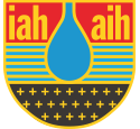News
-
The EU Council has formally adopted a directive updating the list of pollutants affecting surface water and groundwater, including pesticides, pharmaceuticals and PFAS. The revised rules also tighten environmental standards for several substances and strengthen monitoring across the EU. The EU directive amends the water framework directive, the groundwater directive... read more...
-
Around the world, previously reliable coastal freshwater supplies are being invaded by seawater. This is the strange, slow-moving crisis of saltwater intrusion, and it is increasingly affecting communities around the world. In some places, excessive extraction of groundwater for demands such as domestic, agricultural and industrial has also contributed significantly... read more...
-
Parts of Britain could be at risk of further flooding for months to come because so much rain has fallen this year, according to new analysis. Experts have warned of a significant risk of groundwater flooding. The soil is so saturated in areas that have borne the brunt of the... read more...
-
Water scarcity across the MENA region and the Global South is often presented as an unavoidable consequence of arid climates. Yet international research shows a different picture. It is not primarily about rainfall but land management, governance, and broken hydrological cycles. Across arid and semi-arid regions, water scarcity results less from... read more...
-
GSA Connects 2026 will take place between 11-14 October in Denver, Colorado. Find out more about the call for proposals and the awards and grants available below. Call for Proposals: GSA Connects 2026 GSA is now accepting proposals for GSA Connects 2026 and welcomes submissions from both national and international... read more...
-
Bacteria are everywhere, including in groundwater. The longer the water stays underground, the more bacteria there are. We don’t actually know how old the bacteria are. They are growing, so they could be younger, as the water flows underground through porous rocks and sediments. These sediments provide solutions for bacteria to... read more...
-
A new study has revealed new insights into the hydrology of the Ganga River, shedding light on its summer flow and water loss dynamics as it leaves the Himalayas. The team discovered that groundwater, rather than glacial melt, is the primary source sustaining the Ganga’s summer flow across the plains.... read more...
-
Environmental experts are urging Kabul residents to dig absorption wells to strengthen groundwater reserves by capturing rainwater and snow. They explain that this step can help slow the decline of groundwater levels and improve water management across the city. With seasonal rainfall increasing, they describe absorption wells as a practical... read more...
-
A gathering of water professionals honours hydrogeologist Himanshu Kulkarni’s work and explores the path ahead for India’s groundwater journey. Find out more https://www.indiawaterportal.org/amp/story/groundwater/celebrating-the-legacy-and-reflecting-on-the-future-of-indias-groundwater read more...
-
Hungary’s Great Hungarian Plain faces severe desertification as groundwater depletes and droughts intensify, threatening agriculture and prompting government action. Farmers dubbed “water guardians” redirect thermal spa water to artificially flood low-lying fields, re-creating natural flooding cycles disrupted by river channelization. Early results show improved groundwater levels and increased vegetation, offering... read more...



